Figuring out how the heating system in your home is supposed to work can be challenging. Do you have a furnace that's taking forever to start and don't know why this is happening? Well, we've done some digging and have the answer for you.
A furnace should take around five minutes to start once you've turned on your thermostat. That said, you might end up waiting closer to ten minutes to see your furnace kick on if it's older or has an issue with its pilot light. If this is the case, it may need to be checked out by a professional.
As we begin, we will cover all things furnaces and discuss how long it takes for one to start. Whether your furnace is gas or electric, new or old, we're here to help. With that said, let's dive right into this topic!
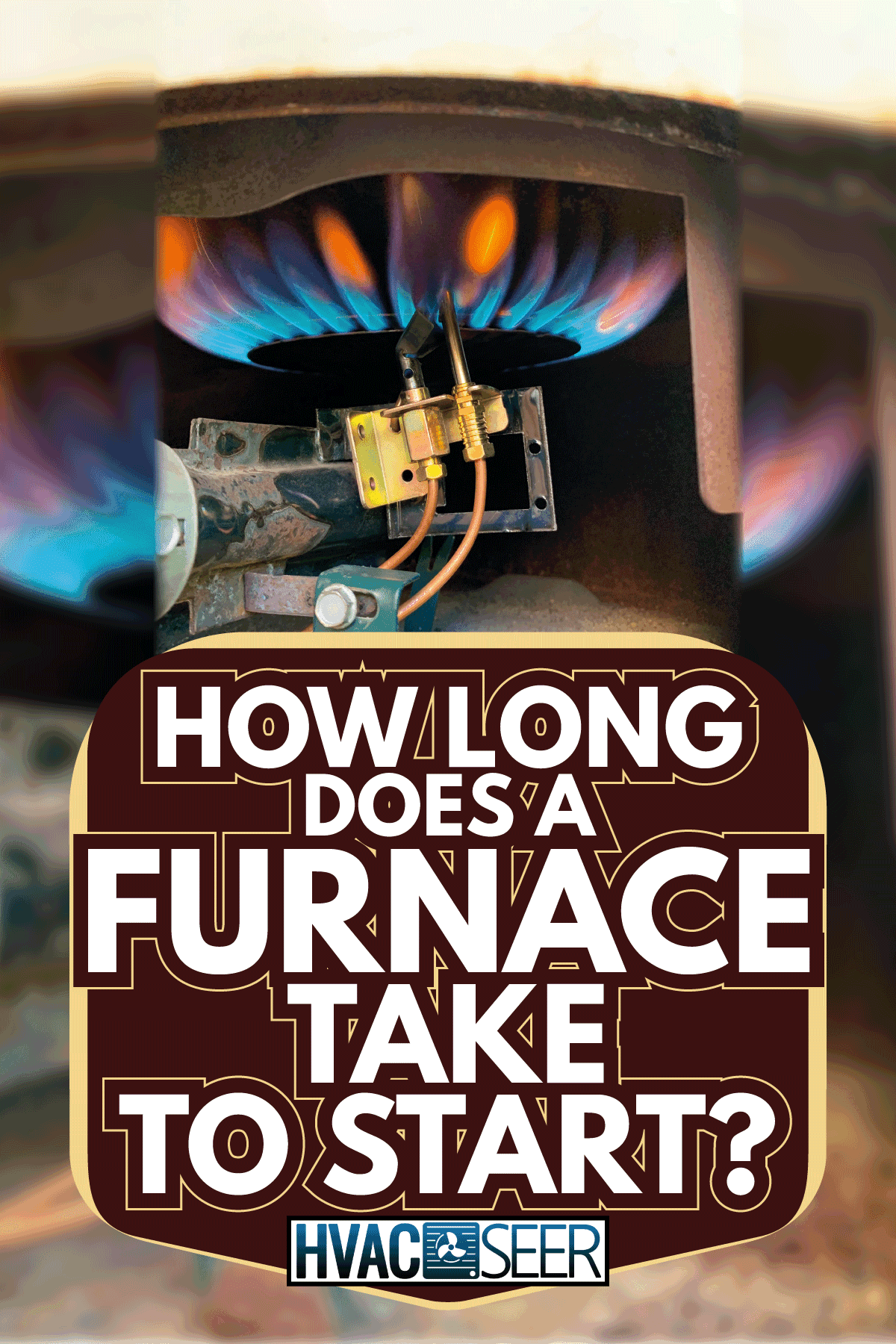
Why Is My Furnace Taking So Long To Start?
If you notice your furnace taking a long time to kick on, this could be due to a few reasons. Most commonly, an aging furnace is to blame, which might take a few tries to ignite and produce a flame.
Your furnace might also be having issues starting due to a faulty or burnt-out pilot light, which you will need to replace to get things back to normal. Another common cause for a slow-starting furnace is a dirty or bad flame sensor, so the list goes on.
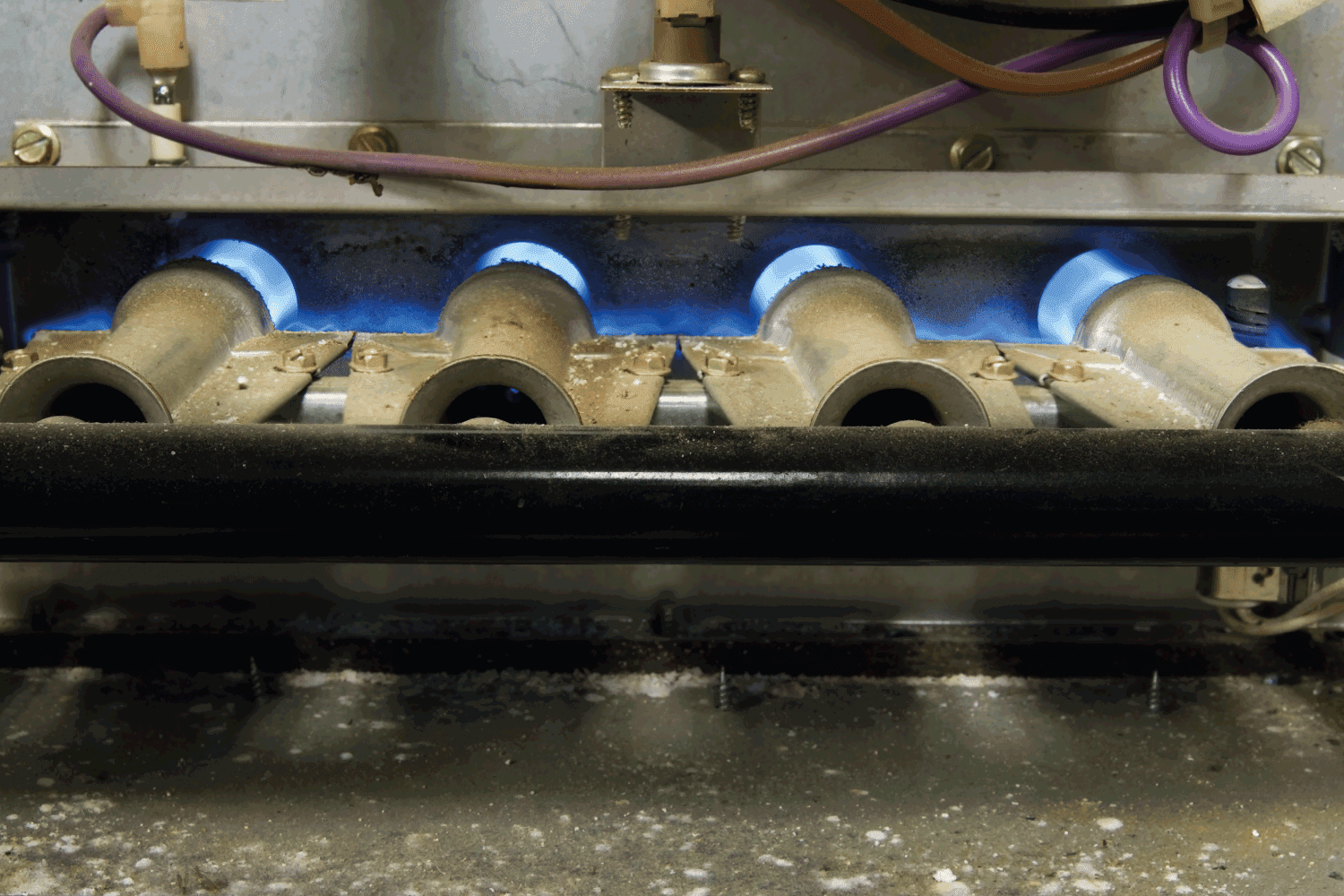
What Do You Do If Your Furnace Isn't Coming On?
Generally, you should inspect your furnace if you notice a delay or if it's not turning on at all. The best way to do this is to:
- Check your circuit breakers.
- Check the settings on your thermostat.
- Make sure your furnace's filters are clean.
- Check the pilot light on your furnace.
- Take a look at your furnace's ignition switch.
That said, if all of these look right and your furnace still isn't coming on, there might be a bigger issue at hand, so it's best to call an HVAC specialist to take a look at your machine.
Why Does My Heat Take So Long To Turn On?
If your heat is taking forever to turn on, this is most likely due to a problem with your furnace. As we covered above, there are plenty of reasons for a slow-starting furnace/heater, ranging from easily fixable to requiring a professional's opinion.
If you have a slow-starting electric furnace or heating system, you may have it on the wrong setting or have it turned off, so take a close look at your machine. Regardless of how your heater operates, a dirty system is usually to blame for longer start-ups, so regular cleaning is essential.
What Does It Mean When A Heater Won't Turn Off?
Generally, a faulty or broken thermostat is to blame for a heater that won't turn off. Especially if your system is entirely electric, a bad thermostat can cause it to run continuously, even if you turn it off.
Most times, a broken switch, heat sensor, or faulty wiring will cause this to happen, which shouldn't take too long to repair. Again, it's always best to bring in a professional if you aren't sure what is wrong, so don't take anything apart by yourself.
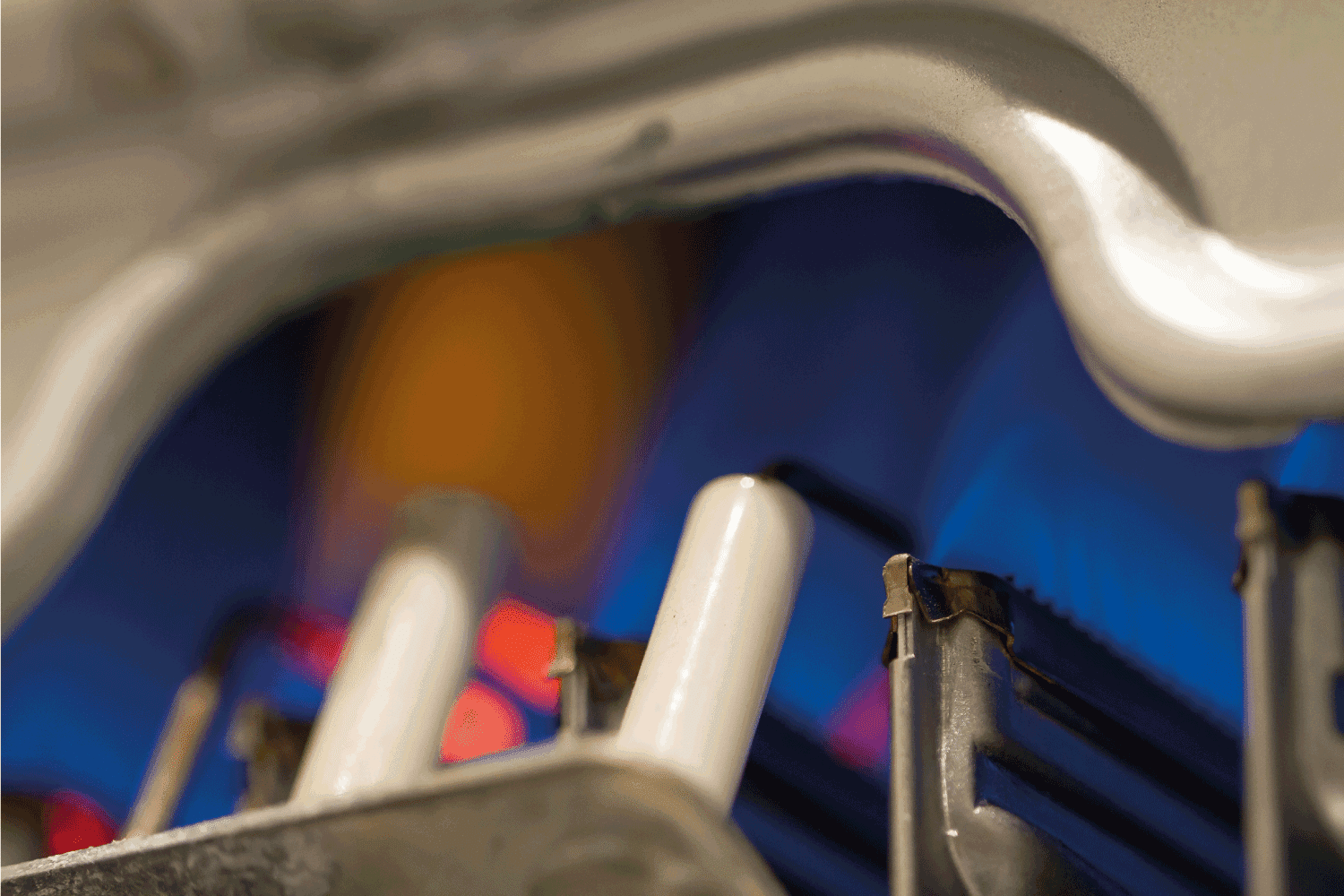
How Long Should A Furnace Run?
A furnace will usually run for about 10-15 minutes per cycle and repeat this process a few times per hour. Depending on how cold it is outside and what temperature you set your home to, you might notice your furnace kick on two to three times per hour, which is completely normal.
A home's insulation will also affect how long/often a furnace turns on, which is something to note.
Is It Bad For A Furnace To Run Constantly?
If your furnace is constantly running, this usually isn't a good sign. Typically, this is due to a technical glitch or a faulty part, so make sure to inspect your furnace/thermostat.
A furnace that won't turn off will also lead to higher electric consumption and thus a bigger bill, which is another reason you want to fix yours as soon as possible. It's also not safe for a furnace to run 24/7, as your home might start to feel like an oven, so this is rather serious.
How Can I Tell If My Furnace Is Working?
An easy way to tell if your furnace is working is to check its flame. Of course, this only applies to a traditional gas option, but it's a good way to see whether your system is running.
For an electric furnace, you want to listen for a soft humming sound or feel it to see if it's warm, which will indicate everything is working.
You can also keep an eye on your thermostat to see if your house's temperature is going up or down which will tell you whether your furnace is on or not.
How Long Does It Take For A Furnace To Heat A House?
In general, your furnace will take about an hour to warm up your home by a few degrees. Although this depends on a home's size and the furnace's age, you should expect the temperature to feel slightly warmer after about 30-45 minutes.
That said, insulation also plays a big role in how quickly a furnace can heat a space, so you may need to add more if you notice a problem with your home staying warm in colder temperatures.
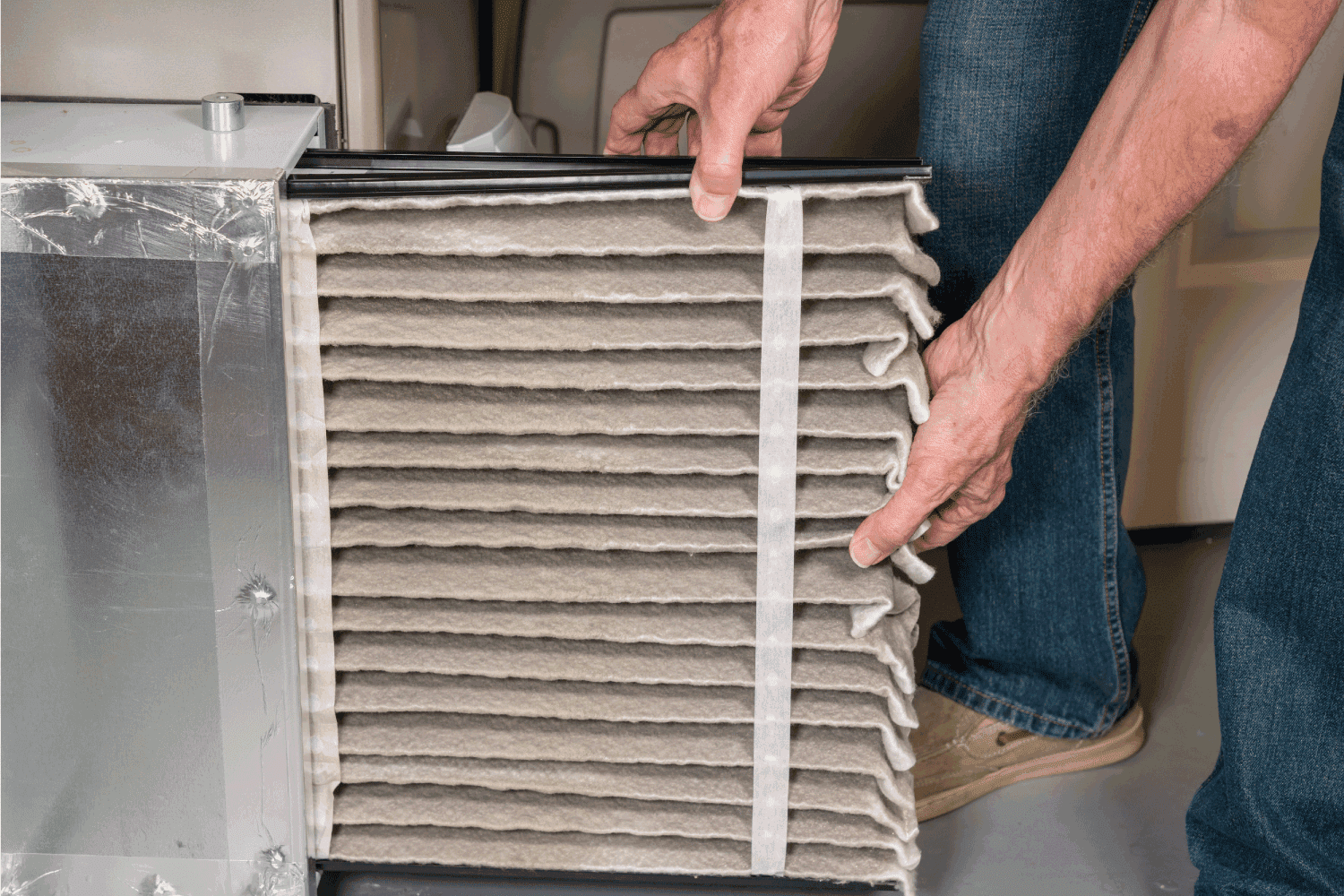
Is A Gas Furnace Hard To Maintain?
Maintaining a gas furnace usually isn't too difficult. As long as you regularly clean your furnace and get it checked annually, there shouldn't be any problems, which is why many people love a traditional gas option.
With that said, you want to change out your gas furnace's filter every one to three months, so make sure to stay on top of it. It's also a good idea to keep your furnace up to date, making sure to replace any worn-out parts promptly.
Does An Electric Furnace Heat Better Than Gas?
Between the two, a gas furnace will heat your home faster, while an electric furnace will do it more efficiently. Although they both will get the job done, gas furnaces are better for colder climates and are less expensive to operate.
On the other hand, electric furnaces are easier to maintain and last five to ten years longer than gas systems, which is also impressive.
So if you live somewhere very cold and want your heat to work quickly, we recommend gas, and if you prefer a long-lasting system and have moderate winters, an electric unit is the way to go.
How Long Should A Furnace Last?
On average, a furnace should last you around 15-30 years. Like we covered above, electric options will work five to ten years longer than gas, so that's something to consider.
Furthermore, having your furnace checked regularly and keeping it clean will extend its lifetime, regardless of power source, so upkeep is crucial.
How Often Should I Get My Furnace Checked?
Ideally, you should have a professional look at your furnace every year. Many furnace manufacturers recommend this to ensure your system is working efficiently and correctly, which in turn benefits you.
Many furnace warranties won't cover damage related to poor maintenance, so make sure to schedule an annual inspection. They also mention how it's a good idea to have your furnace checked out before winter so you aren't stuck without heat when you need it.
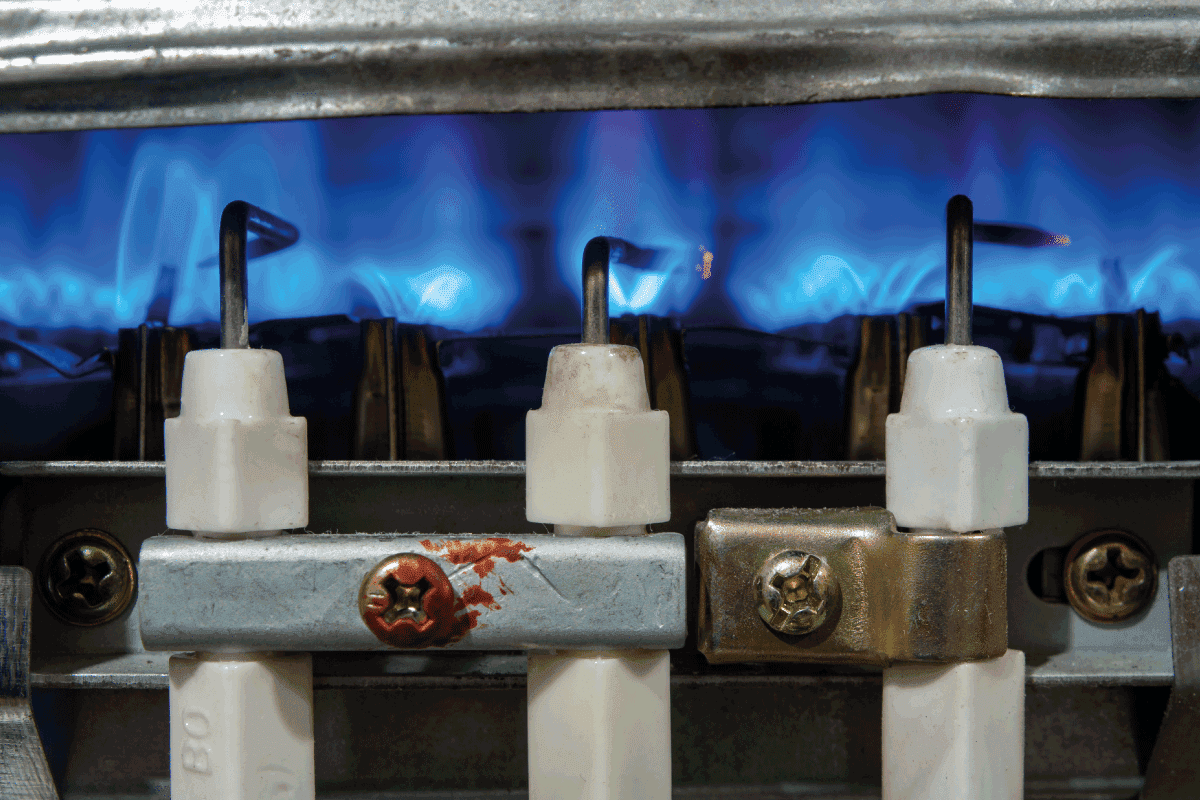
To Wrap Everything Up
Whether you have a brand new furnace or an older one, it's essential to know how it should work. A furnace should take around five minutes to start, although this might take a little longer depending on the age of your system.
Your furnace might not turn on due to a burnt-out pilot light or a dirty flame sensor. A furnace may also be slow-starting because of an issue with its thermostat, so you may need to call in an electrician.
Regardless, keep your furnace clean, and don't forget to schedule an annual check-up before the winter season.
Before you go, be sure to check out these helpful related posts below!
Trane Electric Furnace Blowing Cold Air - What To Do?
